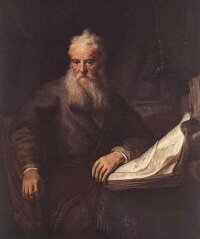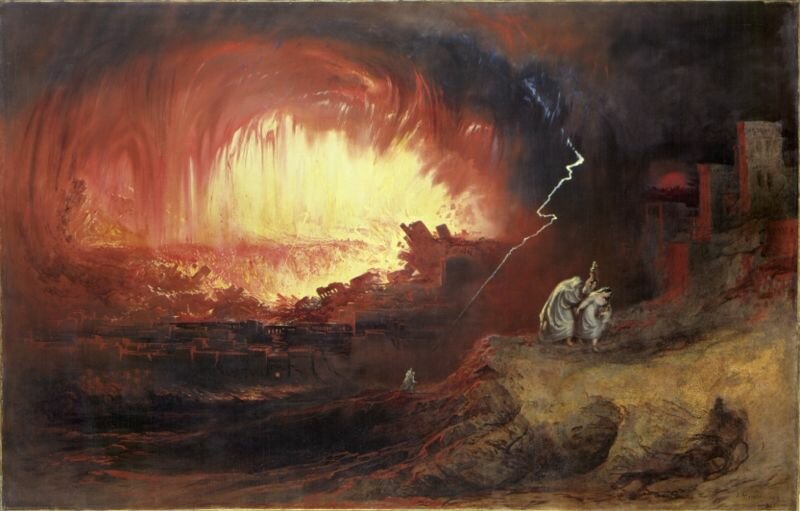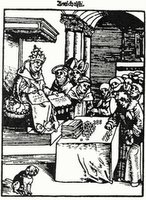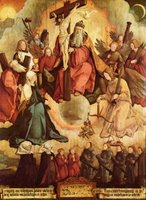
God is a single being existing simultaneously as three distinct persons: The Father, The Son, and the Holy Spirit. The doctrine of the trinity is a reference to the "tri-unity" of God. There is only one God, but this God is a unity of one (Deuteronomy 6:4; Isaiah 44:6-8; 45:5-6; 1 Tim 2:5; 1 Cor 8:4). This God is also a complexity within unity (Gen. 2:24; 11:6; 1 Cor 3:6-8).
Scripture and tradition
The word "Trinity" comes from "Trinitas", a Latin abstract noun that most literally means "three-ness" (or "the property of occurring three at once"). Or, simply put, "three are one". The first recorded use of this Latin word was by Tertullian in about 200, to refer to Father, Son and Holy Spirit, or, in general, to any set of three things.
The Greek term used for the Christian Trinity, "Τριάς" (a set of three or the number three), has given the English word triad. The Sanskrit word, "Trimurti," has a similar meaning, as has "Dreifaltigkeit" in German, and many other words in other languages.
The New Testament does not use the word "Τριάς" (Trinity), but only speaks of God (often called "the Father"), of Jesus Christ (often called "the Son"), and of the Holy Spirit, and of the relationships between them. The word "Trinity" began to be applied to them only in the course of later theological reflection.
The earliest Christians were noted for their insistence on the existence of one true God, in contrast to the polytheism of the prevailing culture. While maintaining strict monotheism, they believed also that the man Jesus Christ was at the same time something more than a man (a belief reflected, for instance, in the opening verses of the Letter to the Hebrews, which describe him as the reflection of God's glory and bearing the impress of God's own being, and, yet more explicitly, in the prologue of the Gospel according to John) and also with the implications of the presence and power of God that they believed was among them and that they referred to as the Holy Spirit. St Paul even goes so far as to state that "in [Jesus] lives all the fullness of Deity bodily" (Colossians 2:9).
More...
 The Tree of Jesse (Hebrew:ישי Yishay) refers to a passage in the biblical Book of Isaiah which metaphorically describes the descent of the Messiah and is accepted by Christians as pertaining to Jesus, and is often represented in art, particularly in that of the Medieval period, the earliest dating from the 11th century.
The Tree of Jesse (Hebrew:ישי Yishay) refers to a passage in the biblical Book of Isaiah which metaphorically describes the descent of the Messiah and is accepted by Christians as pertaining to Jesus, and is often represented in art, particularly in that of the Medieval period, the earliest dating from the 11th century.











